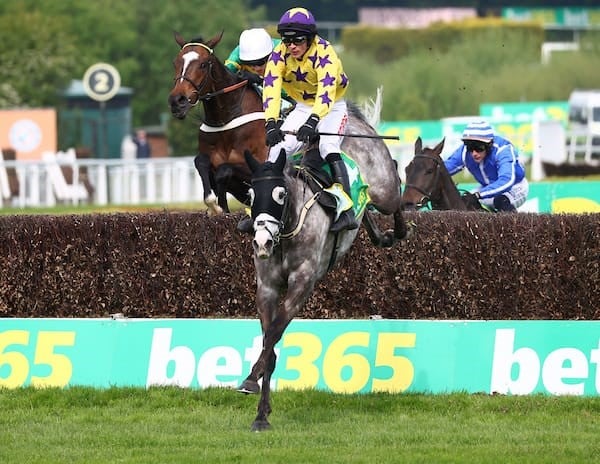NOVEMBER 30 – DECEMBER 5
Turffontein CE John Alexander is appointed chief executive of the New Zealand Racing Industry Board. The Board has been in existence only since August and intends to achieve what the old-boy network that ruled racing in New Zealand for too long has failed to do: restructure racing and halt the decline in turnover.
Alexander had to fight off stiff competition from Australia and New Zealand to secure the job, which he will take up only in the middle of 1993.
The RIB recently announced a NZ$6 million a year injection into stakes for each of the next 3 seasons, this money coming from funds previously allocated out of the betting dollar to the development of on-course amenities. This was called for since the decline in stakes began two seasons ago. In 1989/90, a total of NZ$35 million was allocated in stakes for 3400 races country wide. In 1990/91 this dropped to NZ$31 million, the same as in the 1991/92 season. Proportionately, the added NZ$6 million represents a substantial injection, but it comes with strings attached, in that it will be used to hasten the implementation of a tiered racing structure. The main regions of Auckland, Wellington and Christchurch will receive the most, in order to provide the top strata of racing. New Zealand has 92 raceclubs, racing on 57 tracks. The number of horses (just on 7000) and number of races (3400) in a season is marginally below South Africa’s horses and races.
Alexander says he’s looking forward to returning to New Zealand (he was born there) and thinks that especially the new TAB television channel looks a wonderful thing. “It is taking racing into the homes and must attract off-course betting as well as people to horse racing. It should be an opportunity to get at the younger market. Worldwide attracting young people into racing is one of the biggest problems”.
Three Court of Appeal judges, at the High Court in London, hold that rulings by racing’s all powerful controlling body, the Jockey Club, are not open to judicial review. This came in the case of the Aga Khan vs. the Jockey Club, on the disqualification of the Aga’s 1989 Oaks winner Aliysha. The judges ruled that judicial reviews had to be confined to matters of public law involving governmental bodies and tribunals – but not organisations like the Jockey Club. The latter body commented: “All sporting authorities in this country will surely welcome the fact that any remaining doubt in this matter has now been removed”.
Closer to home, the long drawn-out case between the Jockey Club and trainer Forbes comes to conclusion. The case had its beginnings in December 1988 when a urine sample taken from the Forbes trained horse Fastoll tested positive. After much to-ing and fro-ing with fines, appeals, dismissed findings and dismissed appeals, the case made it as far as the Supreme Court, where Mr Justice van der Merwe showed himself to be satisfied that trainer Forbes had been victimised by the Jockey Club and that he’d been charged under the wrong rule.
The Jockey Club sought leave to appeal to the Appellate Division of the Supreme Court. In a 54-page judgement handed down, the Acting Judge of Appeal again found in favour of trainer Forbes. The Jockey Club’s appeal was dismissed with costs.
The case, which didn’t exactly show the Jockey Club, so prone to praise its own integrity, in a favourable light, is estimated to have cost the Club in the region of half a million Rand.
The transfer of the Milnerton feature races to Kenilworth has some amusing side-effects. Firstly, Gale Rising’s trainer De Ridder was proved right about the Guineas venue (see entry for 16-22 November 1992), but the mind boggles to know what the former chairman of the Cape Turf Club would have thought of the race named in his honour being decided at the rival track. Which is probably why it turned out to be a horse named Art de Vivre to take the honours in the Gr3 Abe Bloomberg handicap. Truly Charlie runs second.
DECEMBER 6 – 12
Flaming Rock, at 7/10, wins the Gr2 Premium Stakes over 2000m as a final dress rehearsal for the Queens Plate and J&B Met. The Rock scored somewhat cheekily from Seal Ring, Secret Hoard and Stag Hunter.
At Fairview trainer Stanley Greeff lands an unusual betting coup, when he objects on behalf of his Rotterdam filly Dutch Dame against five other horses in a race. Dutch Dame started as 8/10 favourite in a graduation plate for fillies and mares. Or at least that’s what everyone else thought. Greeff had noticed that the conditions of the race were ‘fillies’, not ‘fillies and mares’. Greeff objected against the five mares in the race. Predictably, the objection was upheld and the five mares disqualified. No wonder Dutch Dame had been backed as a ‘good thing’.
The Jockey Club opens an enquiry into the events surrounding the disqualification of five mares at Fairview.
DECEMBER 13 – 19
The Ready-to-Run sale, held at Kenilworth, averages a modest R6.000 for 39 lots. Highest price is paid by Natal trainer Dawson for a Complete Warrior filly.
A star-studded field comes under orders at Durbanville. Last season’s champion sprint filly Marie Galante is favoured to beat Taban in the feature event, the R40.000 (!) Southeaster Sprint. Neither wins, as Empress Club storms home instead, at odds that make even Cape bookmakers blush. Thought not to be fully fit yet, and running over a distance (1000m) too short for her, the Empress breaks the course record by over half a second to win unchallenged at odds of 4/1!
Goldmark is voted Cape Horse of the Year for the 1991/92 season at the traditional Cape Guineas dinner. Trainer of the Year is Stanley Greef, while Varsfontein takes the coveted Breeders award. Others to win awards are Vesta (2yo filly), Dancing Duel (2yo colt), Marie Galante (3yo filly), Military Muse (3yo colt). Steve Phelps is the Cape owner of the year, Mark Khan jockey of the year. Stallion of the Year goes to Divine King, and Mashka (dam of Olympic Duel, Dancing Duel) takes the broodmare award.
The Gr1 Cape Guineas is a triumph for Hassen Adams’ Damascus Stud, which bred winner Eli’s Truth and fourth finisher Court Messenger. The filly Vesta claimed second spot ahead of New Zealand bred gelding Take A Walk, who had been backed from an opening price of 16/1 to 5/2 favourite on the day.
The winner is a son of the Elliodor stallion Eli’s Star, a stayer on the track who started his stud career with just a handful of mares. Eli’s Star had four foals in his first crop, of which three have won.
Eli’s Truth broke Wainui’s 1600m course record in a fast run race with a time of 1m37s – but the real record unofficially belongs to Vesta, who ran below 1m37 in the Fillies Guineas 3 weeks ago.
All of the first four finishers are expected to renew rivalry in the Cape Derby early in February.
DECEMBER 20 – 26
Racing in Hong Kong resumes after a seven-meeting shutdown caused by equine influenza.
The first Arab-owned racehorse comes to South Africa. Braashee, a bay horse born in 1986 and thus a seven-year-old by our standards, arrives from Australia where he’d been sent to have a go at the Melbourne Cup. Braashi is by Sadler’s Wells out of a mare by Malinowski (half brother to the dam of Northern Guest) and stayed two miles. Winner of six races in the UK, he rated 118 in his last season there (1990).
Braashee’s dam Krakow is a half sister to the dam of sire Turnkey, his third dam is a full sister to the dam of SA champion sprinter Uncle Ben, while his fourth dam is a half sister to sires Sun Compass and Luminary.
Given his pedigree it is quite possible that Braashee may prove best over much less than two miles. He is said to go into training with Tony Millard. It seems that he’ll have to reproduce his very best British form to do well here in big races.
Braashee will take up stallion duties at Summerhill when the time comes.
J&B Met favourite Empress Club draws 46 out of 49 when the weights and draw for the big race are announced at a special J&B luncheon held at Kenilworth racecourse. The filly is set to carry 55.5 kilos, which is 2.5 kilos less than Flaming Rock, and half a kilo less than Spanish Galliard.
With typical thoughtfulness, the Cape race clubs steal the thunder of the J&B Met draw, when they announce “an urgent investigation into a possible amalgamation of the management operations of the two clubs” on the same day.
Clearly, this announcement couldn’t wait a day longer (say, until a day after the J&B’s draw). The Cape media falls for it hook, line and sinker, and gives the “merger” rumours (how wrong a message can you get?) front page treatment, pushing the J&B Met draw into a somewhat forgotten corner.
What’s a sponsor, after all?
The Gr2 Majorca Stakes is won in good style by front running Display Model, whose jockey Mark Khan lulls the opposition into a sound sleep. Display Model confirms her outstanding effort from the Fillies Guineas and wins at generous odds of 6/1. Third placed French Treasure is disqualified after the pay-pay, when it is discovered that she carried a kilo less than the conditions of the race required her to do.
UK apprentice Kate Ahern becomes the first female apprentice to ride in South Africa. Attached to the stable of John Dunlop in the UK, Kate rides for Alistair Gordon during her stay in Natal.
DECEMBER 27 – JANUARY 2
Art de Vivre wins his second Graded Stakes in a row, when the son of Concertino strolls home in the Gr2 Chairmans Handicap over 3200m at Kenilworth.
At Greyville, Heinz Runge is rescued in mid-air when jockey Glyn Schofield pulls him back into the saddle after the young apprentice is partly dislodged when his mount ducks during a race. Mission accomplished, Schofield still manages to finish fifth in the race.
Empress Club makes Flaming Rock and Spanish Galliard look ordinary when she wins the Gr1 Queens Plate by three lengths. The Argentinian filly shows remarkable acceleration in the 1600m race, which only Flaming Rock could match.
The filly is now confidently expected to start at odds-on for the J&B Met. Admits one bookmaker: “I wish I had nothing to do with race”.
Veterinary services reach new heights when the Summerveld Equine Hospital invoices one of the owners of the horse Star Speed for, amongst other things, dental correction. The owner of the horse has for a long time now had a running battle with the vet practice for wrongly allocated charges, but never this wrong: Star Speed is dead!
When confronted, the vets blame the trainer for pointing out the wrong horse.
Tote betting in Japan reaches $29 billion for 1992, up 5% on the previous year. Tote betting has increased, without fail, in every year since 1956. Some 13 million people attended race meetings held at the 10 major courses during the year, up 8% from the year before.
The South African racing industry is, according to Gary Player Stud’s new manager Guy Murdoch, as healthy as ever. This despite the recession, which has so many farmers with their back against the wall. Murdoch is quoted in the country’s foremost farming magazine, Landbouweekblad. “Little has changed with the recession, there will always be a flourishing market for potential champions. What has been hit is the market for average racehorses – it seems that this market is now saturated”. Guy Murdoch is also of the opinion that “with our depressed economy of today, it isn’t worthwhile to spend any time, money or attention on horses unless they are the very best”.
Asked as to how the buyer of an expensive horse knows that the horse will fulfill the expectations, Murdoch stated that “with the depth of the genetic pool for racehorses, it seldom happens that a specifically selected and bred foal does not come up to expectation”.
In the Transvaal, stakes for minor events are increased by an average 7%. Maiden races now carry a stake of R24.000, while top division races go up to R55.000. The stakes for minor features increase at all tracks except the Vaal, which maintains 1992 levels.
It’s the end for telephone-tips, as Telkom pulls the plug on 087 numbers. A good few of the tipsters disappear off the scene, but several club together to form a phone-accessible pre-paid subscription service.








